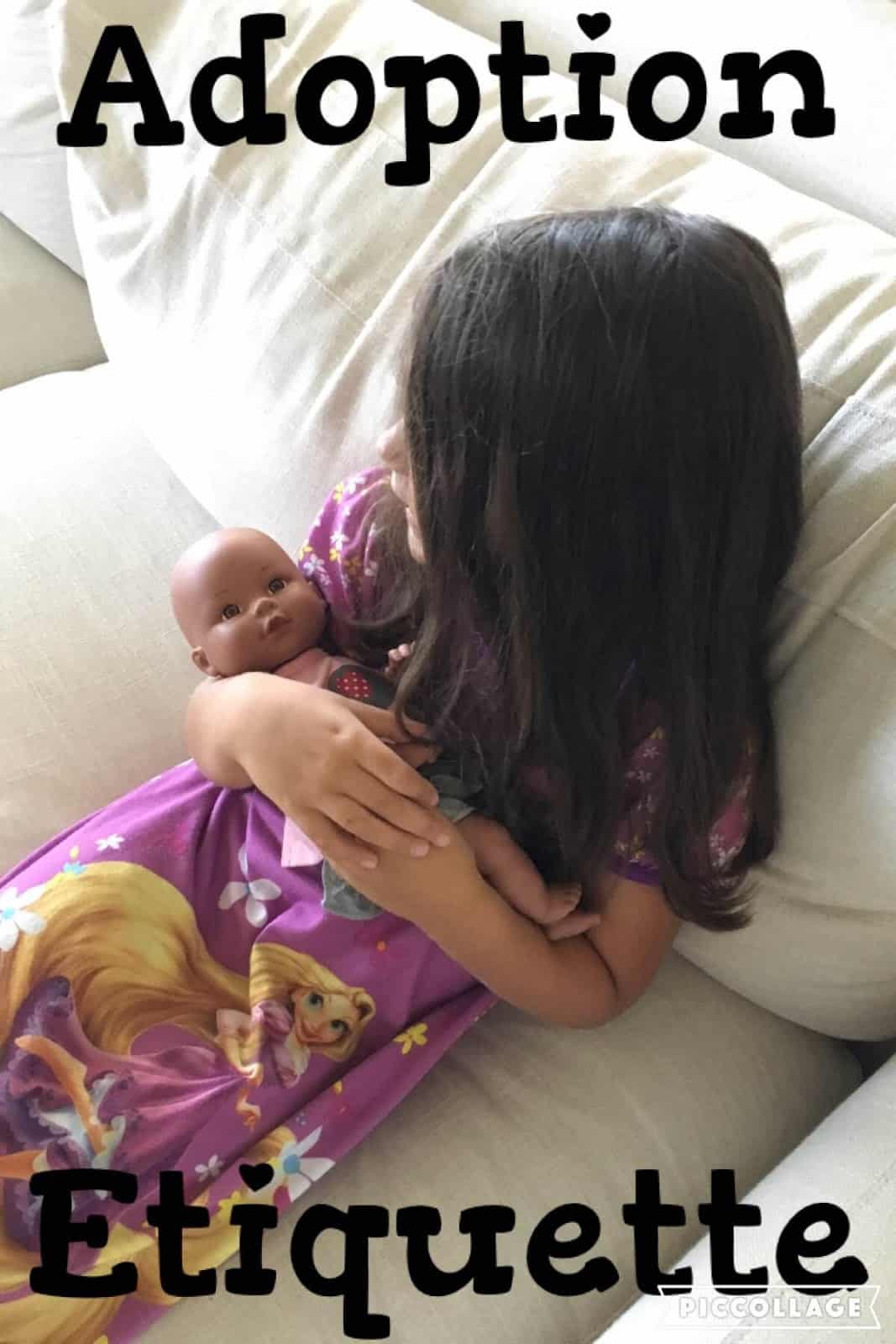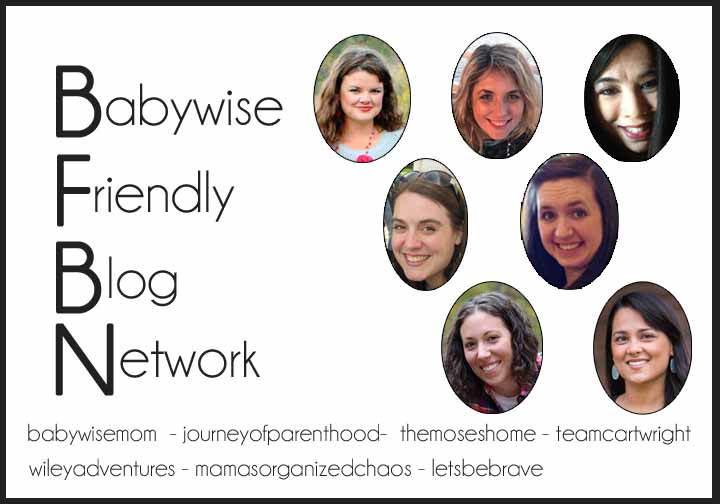Today is Babywise Blog Network Day! I’m posting over on Mama’s Organized Chaos about helping your toddler be more flexible and Natasha, from Let’s Be Brave, is guest posting here. It’s yet another “God thing” for our adoption story that Natasha has recently joined the Babywise Friendly Blog Network. She is so open and honest (two things y’all know I LOVE) and shares her personal journey through parenthood. She has an “insider scoop” on adoption and I’m thankful she wrote this post on Adoption Etiquette. I know our journey is just beginning but we’ve def already had some rather hurtful things said to us in this process!

Adoption can be foreign territory for those who aren’t doing it or haven’t done it. Often the “foreignness” of it can make it hard for friends and family of adoptive families to be supportive, as well as make adoptive families feel isolated. I like to try to bridge the gap, so to speak, by just being open and honest about it all – how I feel, what I need, what makes me feel supported, and what makes me feel alone in this. Below is a short guide on some adoption etiquette that I hope gives friends and family of adoptive families a little insight into the world of adoption and helps bridge the gap.
1. Finances – I think we all know that private adoptions are expensive. I’d venture to say that a lot of us even know a ballpark price range that private adoptions fall into. Frankly, the exact amount a family spends on their adoption is not really anyone’s business. If the family is fundraising for the adoption, I think it would be safe to ask how the finances are coming along and if there are any specific finance-related prayer requests – and leave it at that. If you are considering adoption and have serious finance-related questions, you can ask the family if they would be willing to answer those questions. Most adoptive families are big advocates of adoption and would be happy to talk to you under those circumstances! Also, I hate that I even have to say this, but to ask “how much a child cost to get” or any other finance questions in front of the family’s children (biological or adoptive) is wildly inappropriate.
2. Negative adoption stories – The negative adoption stories that you know of? Keep those to yourself. When I hear these stories about families who weren’t chosen by a birth mother for 10 years or horror stories about failed adoptions, I can’t help but think, “Why are you telling this story?” Stories about dangerous criminal birthparents or babies born on drugs or with surprise special needs – those aren’t cool either. When someone gets pregnant, people say, “Congratulations!” They don’t launch into stories of miscarriages and births gone wrong. The same rule of thumb applies to adoption.
3. “Guarantee” statements – “I know that you [fill in the blank]” – you will get, you will have, this will happen – are NOT helpful. When I hear “guarantee” statements, I can’t help but think, “But what if not?” No one on this earth knows how long it will take for a birth mom to choose a specific adoptive family. No one can guarantee anything in this process. The Lord is the only one with any real answers or guarantees, and the the only guarantee that can be made throughout the adoption process is that God builds families. He places the orphan in families, and the baby meant for this family will be the baby they get, whenever and however that happens. So while these statements are usually meant to be encouraging, their lack of foundation in truth often makes them less than so.
4. Terminology – While I’m a huge lover of words, I try not to enforce my own “precision of language” on others. If someone’s words sting or catch me wrong, I try to look past their words to their meaning, because most people mean well. I feel like adoptive families are often in the position to give grace in this way. We’ve entered into a whole new world – we’ve gone to trainings and read books and attended support groups – we’re immersed in the adoption world, and thus, the adoption lingo. So, for the rest of you, here are some tips!
- When referring to an adopted child’s birthmother, the term “birthmother” is more appropriate than, say, “real mom.” When a child is adopted, the adoptive mom is the child’s real mom.
- If, during a conversation (like this post), it’s necessary to make a distinction between the adoptive family’s children, the terms “birth child” or “biological child” are preferable over referring to them as the parents’ “own child.” Bio kids and adopted kids all belong to the parents. They are all their own children. Some just happen to be biological and some happen to be adopted.
- If a birthmother decides on adoption, she’s not “giving up” her child, she’s “made an adoption plan” for her child. This is such a brave, selfless choice so let’s honor it by using positive words when discussing it.
These are just a few examples, but you get the gist. I know we all slip and use words or phrases that are less than ideal sometimes, but if can all at least try to be a little extra sensitive and use positive adoption terminology, I think it would go a long way!
5. History – The child’s history, and that of his/her birth family, is a story that belongs to the child, and in part, to the child’s adoptive family. When the child becomes a part of an adoptive family, that child’s story is now part of that family’s story. And believe me, I know that so many people want to know that story because they’re genuinely interested – we are a storytelling people. But some details just aren’t for us, and some details belong only to the child. Some of the details might be embarrassing or just not pretty. Can you imagine going to school one day and all your friends know you were born addicted to an illegal substance? Mortifying. So be respectful of the adoptive family’s boundaries in this area. Allow them to share only what they feel comfortable sharing and don’t take it personally if they don’t share every nitty gritty detail.
6. Just talking to talk – Don’t feel the need to say just anything. People inherently desire to relate to other people, which I LOVE. But what I don’t love is when people try to relate to something that they really can’t relate to just for the sake of saying something, or try to make connections where there are none to make. You may not understand exactly what an adoptive family is going through – that’s ok. Just say so! “I don’t know what to say” goes a long way. This child may or may not look similar to his/her adoptive family – that’s ok! It’s beautiful, in fact. Don’t feel the need to say the baby looks like his/her adoptive mom/dad/sibling. It’s ok if this baby looks different. I think that’s part of what makes adoption so beautiful. If you don’t know what to say, “That’s so exciting!” or “Congratulations!” or “I’m really happy for you!” or “How can we pray for you?” are always safe choices.
Conclusion
I hope this adoption etiquette guide has been enlightening and encouraging for you! I think the big picture here is this: be sensitive, be aware of your own preconceived notions and willing to change them, and be open and receptive to learning how to support adoptive families around you as they enter this new season of life. Be excited for them and with them, and it’ll be hard to go wrong!
Natasha is a foster-to-adopt mama and hopefully-soon-to-be biological mama. She has four foster children (ages 6, 4.5, 4, and 1.5) and maybe (hopefully) one bio baby on the way. She blogs at Let’s Be Brave.

- 10th Birthday Message For My Daughter Love Mom {Tess’s 10th Birthday Letter} - June 12, 2025
- Tips to Maintain Structure While Traveling with Kids - May 22, 2025
- A Letter to my Son on His 16th Birthday From Mom (Kye’s Bday Letter) - April 30, 2025






